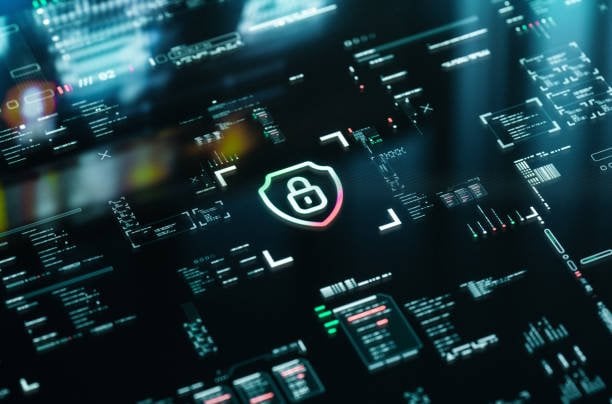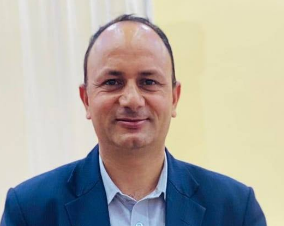Police must protect the identity of suspects, say right activists
 Getty
Getty
Kathmandu, December 26 — Lilaballav Adhikari, the former law minister of Koshi Province, was arrested on November 10 in Biratnagar on charges related to human trafficking. However, due to a lack of evidence, the government attorney’s office issued a ‘clean chit’ on November 25. After 16 days in custody, he was released.
In October, three people who had traveled with him to Japan were deported by Japan’s immigration after it was found they had used forged documents to travel, leading Minister Adhikari to be questioned by the police.
---
In June 11, 2019, a government undersecretary working in the Ministry of Physical Infrastructure was arrested on charges of raping his own daughter. Based on a complaint from family members, the police publicly disclosed the name, position, and other personal details of the accused. Many media outlets also published his name. However, further police investigation later revealed that the rape claim was false, as it was part of a family dispute. The man was released with respect, but neither the police nor the media followed up to announce his innocence.
---
On May 9, 2024, the police publicly informed the media about arrest warrants issued against 20 people, including the then-president of the Nepal Children’s Organization, for allegedly embezzling land. Despite the nature of the crime being civil, the police, under pressure from the Home Minister, treated it as a criminal case and disclosed the names of those under investigation before any formal inquiry had even begun, violating privacy laws.
---
On August 12, 2019 after a case was filed at the Special Court regarding the registration of government land under personal names, former government employee Hari Prasad Acharya from the Kalanki Land Revenue Office committed suicide. He left a suicide note, accusing the then head of the Commission for the Investigation of Abuse of Authority of unfair treatment. The Commission had filed a corruption case against him without conducting an investigation. After his death, the Special Court cleared his name.
---
In a similar case, former employee at the same office Ramhari Subedi also committed suicide following a corruption charge after being implicated in taking bribes from a service user. He too was later cleared by the court after his death.
---
On July 19, 2019, former Joint Secretary Ram Bahadur Pandey committed suicide after being implicated in irregularities at the Tribhuvan University Service Commission. He had jumped from the Radha Bhawan building in Tripureshwar. Following his death, the Commission for Investigation of Abuse of Authority did not file any case against him.
Where is the right to privacy?
The above examples from different cases show that it is common practice in Nepal to publicly disclose the names of individuals who have been arrested by the police, even before they are convicted or investigated.
Our Constitution guarantees the right to live with dignity, which includes the right to personal privacy. The Individual Privacy Act (2018), Section 17, explicitly mentions that the identity of individuals under investigation should not be publicly disclosed.
Former Supreme Court Justice Balaram KC states that the practice of publicly naming individuals before investigations have even started is carried out "with courage" in Nepal.
According to him, the state is responsible for protecting personal privacy while conducting criminal investigations, and it should always be cautious while doing so. He added, “Suspicions may be raised against anyone, but not everyone under suspicion is guilty. Only the court can declare someone guilty.”
Police justification for disclosure of names
Police spokesperson DIG Dan Bahadur Karki defends the practice by stating that the right to privacy is not an unlimited right. He argues that although individuals under investigation have the right to privacy, the law does not prevent the disclosure of their names and details. He justifies this by saying that informing the public about criminal activities is necessary for citizen awareness.
The legal conflict
There is a legal conflict regarding the public disclosure of names during criminal investigations. Section 17 of the Individual Privacy Act (2018) stipulates that individuals under investigation should not be publicly named until a charge sheet is filed. However, the law also permits the public disclosure of information related to the crime or the accused if it does not violate the individual’s rights.
This legal ambiguity has led to numerous Supreme Court rulings clarifying the issue of privacy. In a case filed by Apurva Khatiwada against the Nepal Government in 2015, the Supreme Court ruled that public disclosure of a person’s name before being convicted violates their constitutional rights and personal dignity.
Blacklisting and mask practices
The National Human Rights Commission (NHRC) has repeatedly warned the police about such violations. In January 2024, it even published a list of police officers and personnel who violated human rights. The NHRC has also written to the police, advising them not to publicly disclose the names of suspects before a charge sheet is filed.
Although there has been some improvement in the police's practices, NHRC member Lili Thapa notes that the changes are not sufficient. She mentions that in the past, suspects were openly presented at press conferences, but now, masks or improvised coverings like hole-punched noodle cartons are being used to hide faces, though the practice of public shaming continues.
Reform and protection of rights
Deputy Attorney General Sanjiv Raj Regmi acknowledges that while police can disclose information about arrested individuals, the manner and timing of such disclosures must be carefully considered. He emphasizes that public disclosure should not violate the individual’s dignity or privacy rights.
Compensation for the innocent
In Nepal, it is common for criminal cases to drag on for a long time, with some judgments overturned on appeal. In such cases, individuals who are eventually found innocent may have spent significant time in custody. However, the law does not clearly define a process for compensating individuals who are wrongfully accused.
According to lawyer Santosh Babu Sigdel, there is no clear provision in the Individual Privacy Act regarding compensation for the wrongly accused. However, recent court rulings have started addressing the issue of compensation for those wrongfully detained or accused, which he sees as a positive development.


Leave Comment